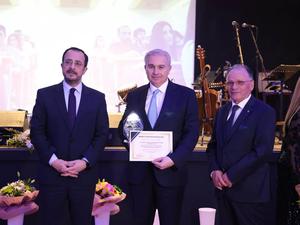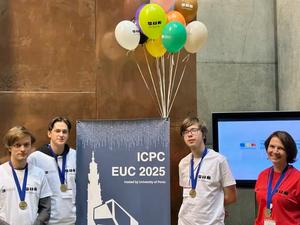Information
The Master of Science program in Structural Robustness for Extreme Loading Conditions will be the first postgraduate program specifically focusing on the special issue of “Extreme Loading Conditions on Structures” in Cyprus, in the whole Eastern Mediterranean Region, and most probably in whole Europe. This topic is usually not specifically addressed in usual courses of civil/structural engineering, which, in general, focus on “common” loading conditions. Unfortunately, the recent past shows that such “extreme” loading conditions, due to environmental and/or anthropic causes, may not be disregarded during the design process of a building and, in particular, in the design of strategic structures and infrastructures that should remain operative during emergencies.
The curriculum of the MSc in Structural Robustness for Extreme Loading Conditions is designed to provide the necessary knowledge to students regarding the structural robustness for such extreme loading, taking into account various scenarios, as well as different types of buildings (housing, office, commercial and infrastructures), teaching how these extreme loading conditions should be handled, and how they might interact during a catastrophic event (a fire after an explosion, a fire after an earthquake, an explosion after an earthquake, etc.). The curriculum provides up-to-date knowledge in a number of different areas and covers multiple and essential subjects such as Structural Robustness and Risk Engineering and Risk Management. This will be achieved by specific lectures given by professional engineers as well as technicians from Civil Protection and/or Fire Department, who will present the specific issues and case studies. The lecturers are the world-renowned experts in their specific fields.
The MSc in Structural Robustness for Extreme Loading Conditions brings together theory and practice and includes exposure to the latest methods, procedures and techniques used in the field, as well as various technological solutions necessary for the purpose of designing robust structures, which might safely resist to extreme loading conditions, avoiding disproportioned collapse in case of an accidental event.
The MSc in Structural Robustness for Extreme Loading Conditions at the NUP is designed to provide students with the necessary knowledge for becoming experts in design of robust structures that will allow them to play a significant role in this sector in Cyprus and abroad.
Program
SEMESTER 1
- Fire Safety of Structures (7,5 ECTS)
- Internal Market Law (7,5 ECTS)
- Earthquake Engineering (I) (7,5 ECTS)
- Design of structures for blast actions (I) (7,5 ECTS)
SEMESTER 2
- Design of structures under fire conditions (7,5 ECTS)
- Earthquake Engineering (II) (7,5 ECTS)
- Design of structures for blast actions (II) (7,5 ECTS)
- Risk Engineering & Risk Management (7,5 ECTS)
SEMESTER 3
- Dissertation (30 ECTS)
The duration of these studies is three semesters. Entries for the Postgraduate Program are held in September and February/March of each academic year. Each course lasts an academic semester. All students enrolled in the Postgraduate Program, either in the winter semester or the spring semester can choose the courses offered in the relevant semesters. For successfully completing their studies, students need to accumulate a total of 90 Credits (ECTS).
In accordance with the relevant announcements made by the Agency of Quality Assurance and Accreditation in Higher Education, students have the opportunity to complete their postgraduate studies in two academic semesters (12 months) as long as they start the conduction of their Master’s Dissertation during the first or second semester of their studies, including the summer period. In this case, the completion of the Master’s Dissertation may be prolonged during the summer period, for one or two months. In any case, the total ECTS remain 90.
In the first as well as in the second semester students are required to choose four compulsory courses. In the third semester, the students prepare their dissertation (see, section 5). Each of the courses corresponds to 7.5 Credits (ECTS). The credits for each course are distributed as follows: 2 for attendance and participation in the courses, 2 for the completion of midterm assessment during the semester, and 3.5 for the final examination.
In order to obtain their Master’s degree, students are also obliged to conduct a master’s dissertation. The research proposal is submitted by the student, who may request one of the tutors as a supervisor. The thesis can be submitted for up to one academic year after the successful completion of the second semester of study. The dissertation should be relevant to the content of the postgraduate student’s studies and should be original.
Students will write master dissertations and midterm assessments in English.
News

Neapolis University Pafos Awarded for Higher …

Neapolis University Pafos Establishes Jean Monnet …

Neapolis University Pafos and TechIsland renew …








